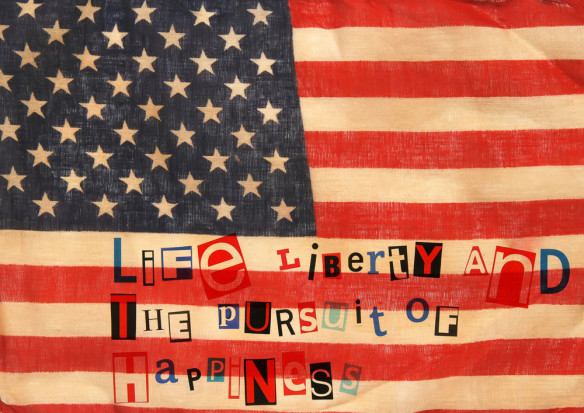… it is extremely difficult to stay alert and attentive instead of getting hypnotized by the constant monologue inside your own head. Twenty years after my own graduation, I have come gradually to understand that the liberal-arts cliché about “teaching you how to think” is actually shorthand for a much deeper, more serious idea: “Learning how to think” really means learning how to exercise some control over how and what you think. It means being conscious and aware enough to choose what you pay attention to and to choose how you construct meaning from experience. Because if you cannot exercise this kind of choice in adult life, you will be totally hosed.
— David Foster Wallace in a 2005 Commencement Speech to the graduating class of Kenyon college
“If you can deal with hot emotions, then you can study for the S.A.T. instead of watching television.”
In my previous post concerning the marshmallow study, I mentioned that being able to strategically allocate one’s attention is crucial to inner and outer happiness. There are practical, worldly benefits: “….this view of will power also helps explain why the marshmallow task is such a powerfully predictive test. ‘If you can deal with hot emotions, then you can study for the S.A.T. instead of watching television,’ Mischel says. ‘And you can save more money for retirement. It’s not just about marshmallows.’”
Wallace continued by saying:
The really important kind of freedom involves attention, and awareness, and discipline, and effort, and being able truly to care about other people and to sacrifice for them, over and over, in myriad petty little unsexy ways, every day. That is real freedom. The alternative is unconsciousness, the default-setting, the “rat race” —the constant gnawing sense of having had and lost some infinite thing.
Western society has been struggling and cycling through the issue of freedom through each period.
To my admittedly limited understanding of Western philosophy, Western society has been struggling and cycling through the issue of freedom through each period. With Protestantism and Catholicism, there is the issue of religious authority and freedom. With revolutionary and civil fervor, the issue of political freedom. And with the tug of war between Marxism and Capitalism, the issue of freedom to acquire material wealth. Each movement has progressively granted more and more personal freedom to the individual. Generally speaking, individuals have more access to religious, political, and material freedom than ever before (although some would argue that window of freedom in the West is passing). This struggle has been with us for so long that in some ways, it has become cliche and self-evident. Yet in the modern technological age of endless possibilities, the issue of freedom is more important than ever.
… a turning of the notion of freedom toward the decision of attention—of cognitive freedom.
From an experiential perspective, I posit a turning of the notion of freedom toward the decision of attention—of cognitive freedom. Bhikkhu Bodhi, in his essay collection (pdf), Facing the Future, identifies freedom as one of the four crucial elements to happiness. Yet “we identify freedom with license, the freedom to act on impulse….” (Bodhi, p. 27). In doing so, many of us are predisposed to letting our attention be captured by any interesting inner and outer elements—emotions, anxieties, ever-encroaching advertisements, limitless entertainment and media, and many other elements.
We may not think we have access to these freedoms. We may be overwhelmed with the massive array of choices—from trivial questions like what products to buy, to what media to consume, where to live, what relationship to engage in, etc. From these small moment-to-moment decisions to the longer-term, macro ones, all of our decisions point to the issue of what we do with our time. As freedom and choices are passed to the individual, one is faced with more responsibility. To paraphrase Uncle Ben in Spider-Man, “With great (personal) power, comes great (personal) responsibility.”

